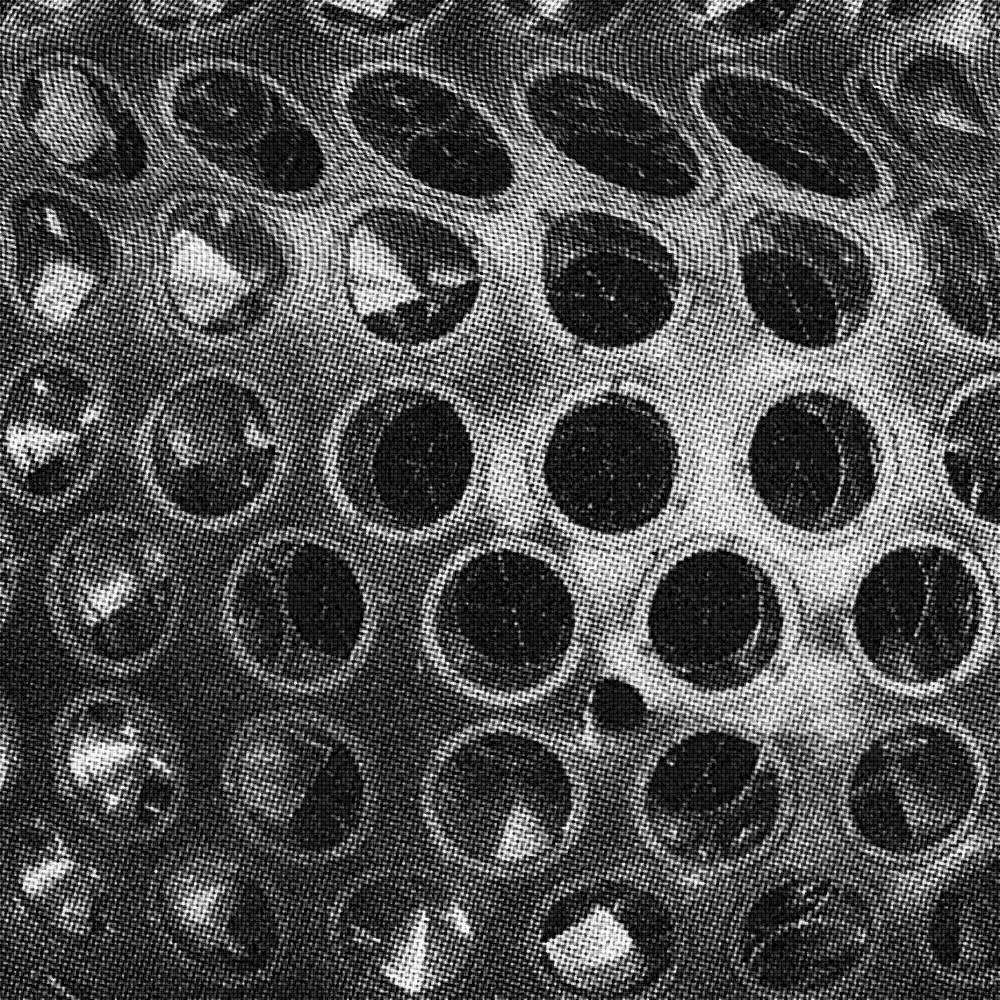In 2016 Darren Cunningham as Actress and the London Contemporary Orchestra collaborated for the first time in a live performance at London’s Barbican centre. Playing a selection of previously recorded material from Actress’ back catalogue and some new original pieces, they distorted the fringes between the electronic – and acoustic realm with a performance that had some lingering effects. Recorded through Boiler Room at the Barbican, the show eventually moved on to the Tate Tanks and the Strelka Institute in Moscow, where it’s garnered some critical acclaim, before being realised in the recorded format as an EP and now, an album, “Lageos”.
Rather more than just a recording of these live shows, the album was reverse engineered (in a sense) from those initial sketches. LCO recorded new material based on these performances as stems, which Cunningham then manoeuvred through the narrative of an album.
“For much of the set we look to realise as close as possible the timbres and colours of Actress’ electronics through acoustic means (which he in turn responds to); something of a physicalisation of those synthesised or sampled sounds”, explains LCO’s Hugh Brunt about what they were trying to achieve through their acoustic instruments and various bric-a-brac re-imagined as instruments, like plastic shopping bags to make hi-hat sounds.
Cunningham reimagines these as the facade of buildings or physical spaces in the way of Iannis Xenakis. Particularly inspired by the impressive brutalist architecture of the Barbican centre, Cunningham tried to “integrate the shapes into the arrangement and then take that apart”, in the arrangement of “Lageos”.
The result is an album with jagged rhythmical edges softened in abstract melodic interludes, that deconstruct its own themes. With the same experimental foresight of Arnold Schoenberg or Karl Stockhausen, but purposely expressed in the language of popular electronic music rather than anything from a classical dialect, Actress and the LCO bring that gap between the classical and the contemporary ever closer through this work. Factor in Boiler Room and the Barbican and worlds do collide.
It’s not the first time a project like this has been realised in the electronic music’s hierarchy and since Techno’s adolescence, artists like Carl Craig and Henrik Schwartz have collaborated with orchestras. LCO are often a part of these style of collaborations and have even worked with artists like Matmos in much a similar way, but those have always been a classical accompaniment or interpretation of an electronic artist’s music and never before have they collaborated in recording wholly new material. “Audio Track 5” is such a piece, a song Resident advisor said “isn’t easy listening, and it’s certainly not his best work”. But I’d have to strongly disagree.
As one of the more palatable songs on the album featuring the rarefied 4/4 beat and happy melodic refrain plodding around those wailing strings and muted piano, there’s a certain amiable quality to the track that definitely makes it one of the more accessible tracks on the album, especially compared to the high frequency drones and chirps of “Momentum”.
There’s two sides to this album, and the patient listener will be rewarded. Listen past the obvious noise, or the stuttering rhythms and there’s a solemn serenity to “Lageos” that only reveals itself as you listen to it more, and as the album progresses through its individual pieces. Even a song like “Galya Beat” with its obstinate, at times overwhelming, serial arrangement, dissolve into the upbeat percussive melodies of “Chasing Numbers” on the other end.
They form a very immersive experience, that plays most effectively on space, the acoustic instruments offering a brand new dimension in the Actress sound. Where previous albums like “R.I.P” and “Ghettoville” often had a kind of claustrophobic and anxious feeling underpinning their tracks, “Lageos” has a far greater endearing quality to it, with LCO really opening up the sound of the artist through their collaboration.
It can’t really be defined in the Actress discography so comparing it to previous albums like “R.I.P” would be unnecessary, but in the contemporary music landscape it makes for a breath of fresh air as something that doesn’t merely pander to any pre-disposed form or style, and taking it from the stage to the recorded format, perhaps sets a new precedent for these types of collaborations in the future.

